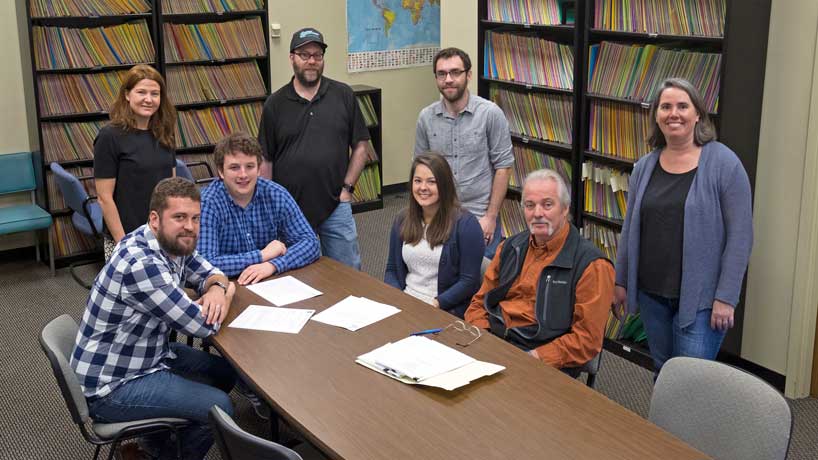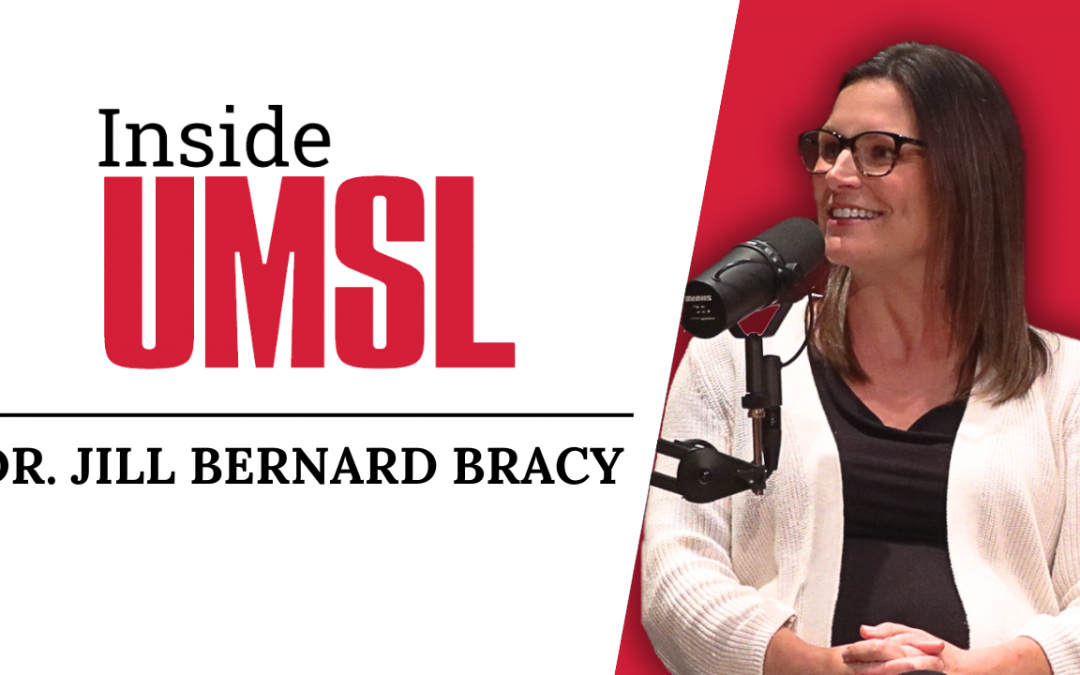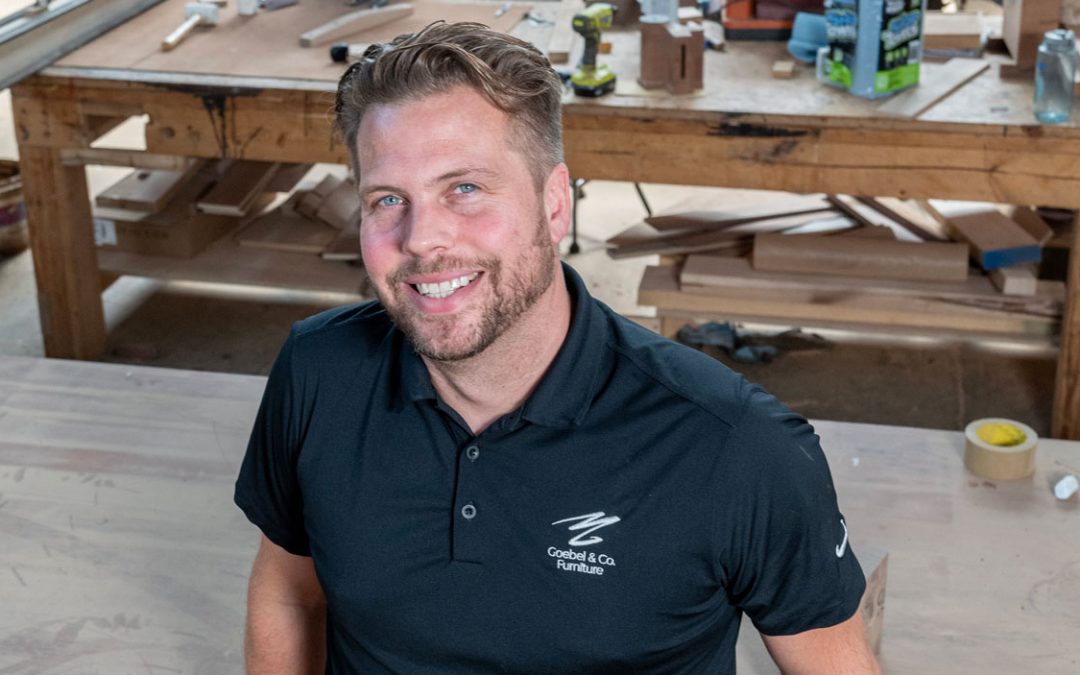
UMSL criminologists recently received a grant from the National Institute of Justice to study school safety. The grant researchers are (standing, from left) Associate Professor Lee Slocum, Associate Professor Terrance J. Taylor, doctoral student Tim McCuddy and Associate Professor Elaine Eggleston Doherty, plus (seated, from left) Assistant Professor Matt Vogel, Assistant Professor Kyle Thomas, Assistant Research Professor Stephanie Wiley and Department Chair Finn-Aage Esbensen. (Photo by August Jennewein)
School violence has become a trending topic in recent years due to tragic incidents throughout the Unites States. In an effort to better understand these situations and others faced by adolescents, criminologists at the University of Missouri–St. Louis are working on a multi-year study to examine school safety issues.
After the December 2012 mass shooting at Sandy Hook Elementary School in Monroe, Conn., Congress allocated $150 million to the United States Department of Justice to improve school safety. The National Institute of Justice, the research branch of the USDOJ, was charged with administering these funds through research grants as part of the Comprehensive Safe Schools Initiative.
A team of eight researchers, led by Finn-Aage Esbensen, the E. Desmond Lee Professor of Youth Crime and Violence and chair of the Department of Criminology and Criminal Justice at UMSL, was awarded one of these highly competitive grants to study school safety and to better understand the causes and consequences of school violence.
“We are all interested in violence prevention, victimization, and all of us have done work in the juvenile arena, so it just seemed natural to bring everybody together,” said Esbensen about the largest faculty research collaboration in the department’s history. “The whole is greater than the sum of its parts.”
Esbensen will work with Associate Professor Elaine Eggleston Doherty, Associate Professor Lee Slocum, Associate Professor Terrance J. Taylor, Assistant Professor Kyle Thomas, Assistant Professor Matt Vogel, Assistant Research Professor Stephanie Wiley and doctoral student Tim McCuddy.
“We are hoping to interview or survey seventh and eighth graders in 16 to 20 schools in four different cities, yielding about 4,000 total students,” Esbensen said. “We will survey them for three consecutive years.”
The team will conduct in-person interviews with students to learn more about the situational factors associated with school violence – not just mass shootings but more prevalent school occurrences such as bullying, cyber-bullying, minor assault and property damage.
Parents, teachers and administrators will also be interviewed to provide insight.
“We will be looking at a number of things, including risk factors, the effects of being victimized and what the school is doing as far as punishment and prevention,” he said.














